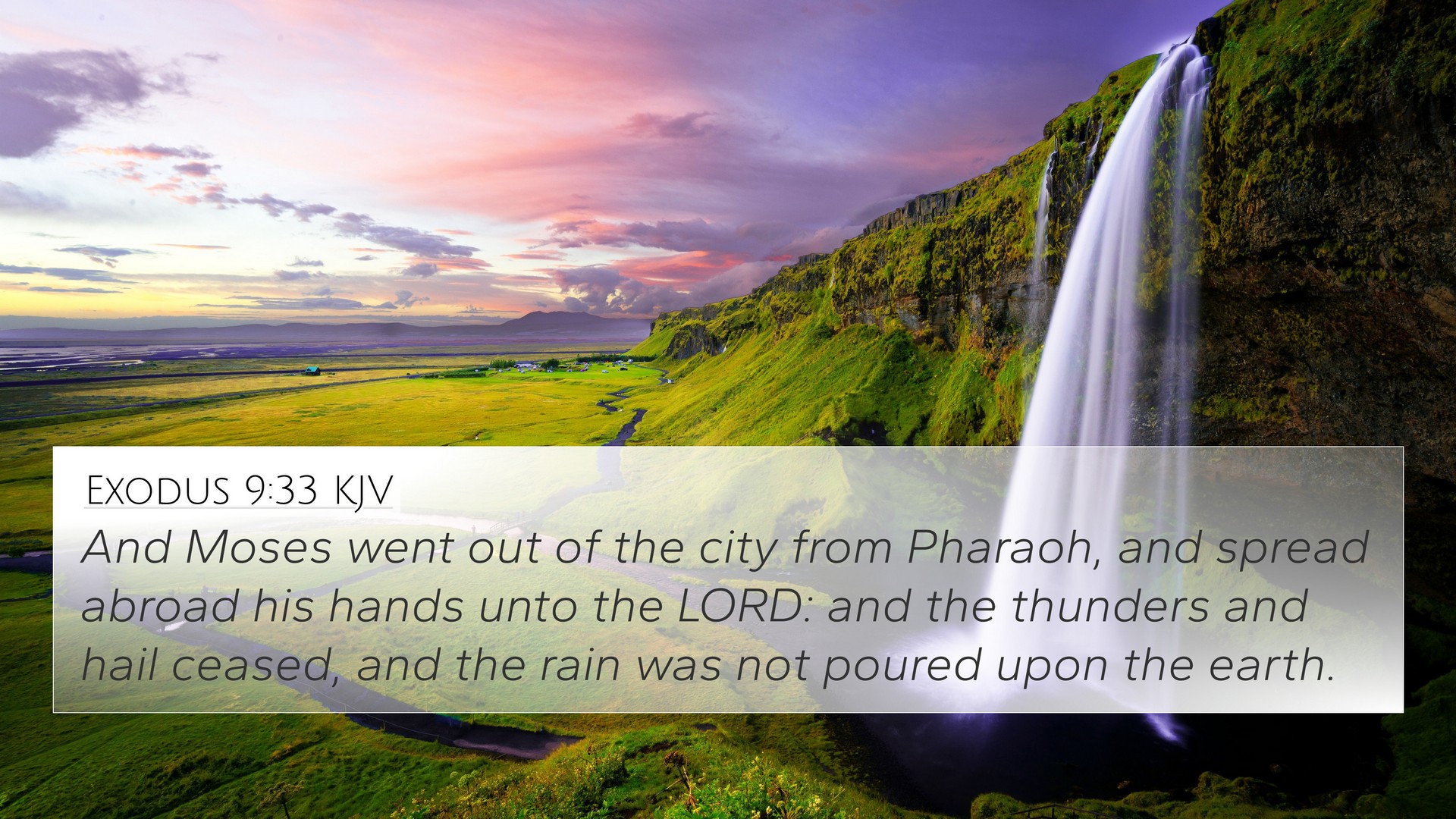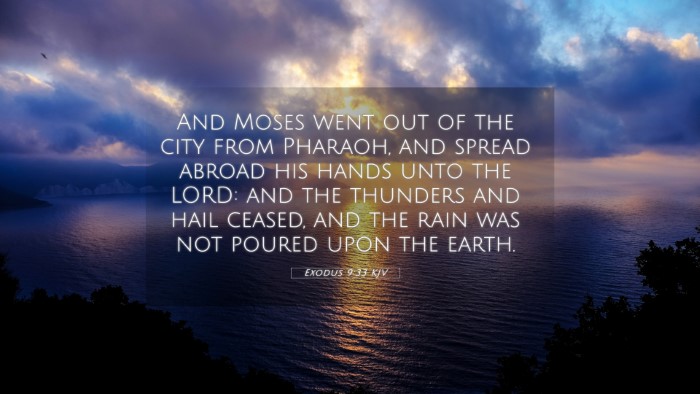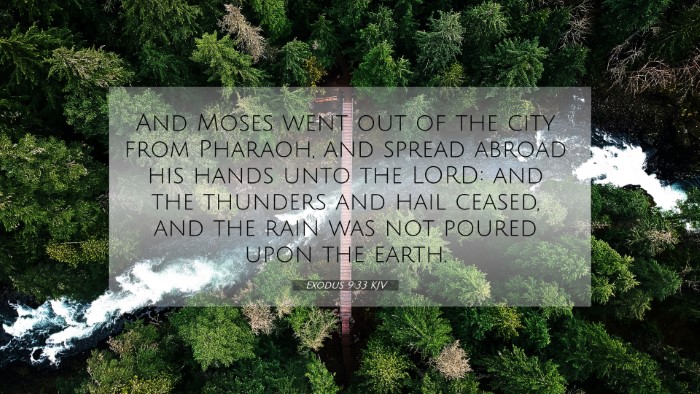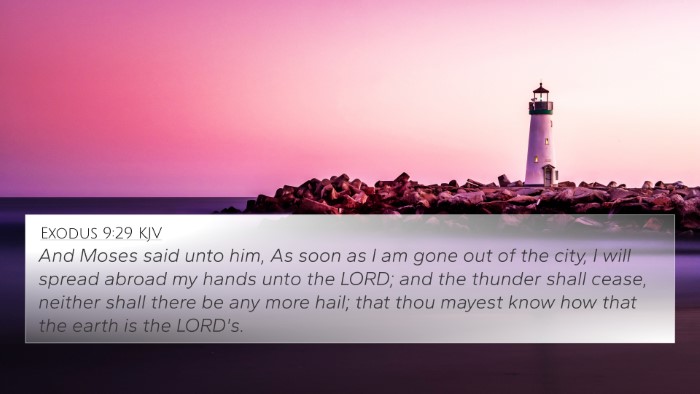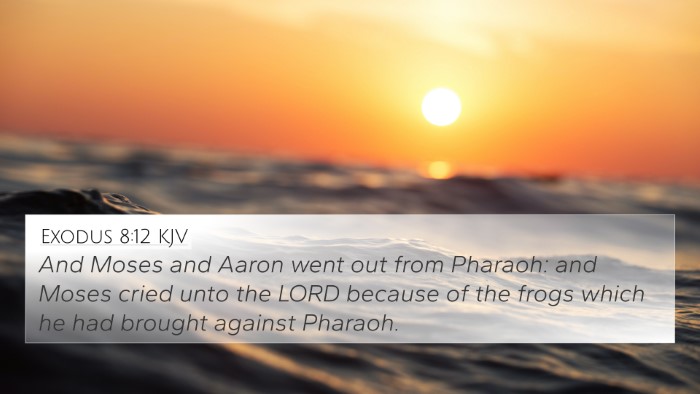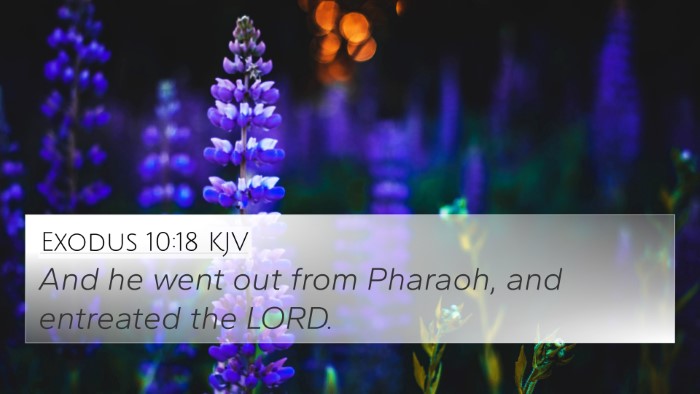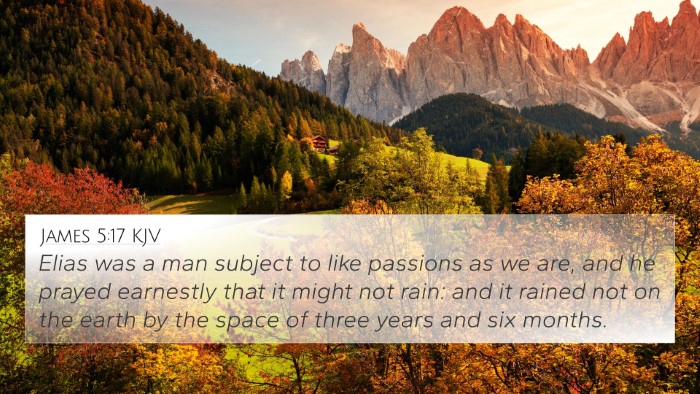Understanding Exodus 9:33
Bible Verse: Exodus 9:33 - "So Moses went out of the city from Pharaoh, and spread abroad his hands unto the Lord: and the thunders and hail ceased, and the rain was not poured upon the earth."
Summary of Meaning:
This verse depicts a crucial moment in the narrative of the Exodus, particularly focusing on Moses as an intercessor. After delivering a message of impending judgment to Pharaoh, he returns to God in prayer, epitomizing the role of a mediator between God and man. The cessation of hail and thunder signifies God's power to respond to the prayers of His servant, showcasing His sovereignty over nature and His willingness to alter the course of events in response to human intercession.
Theological Insights
The theological implications of this verse can be summarized as follows:
- God's Sovereignty: The stopping of the elements upon Moses’ prayer demonstrates that God has ultimate authority over creation, a theme prevalent throughout Scripture.
- The Role of Intercession: Moses' actions exemplify the importance of prayer and intercession, demonstrating how a relationship with God can influence outcomes.
- Signs and Wonders: The hail and thunder are manifestations of divine judgment, often interpreted as God's response to sin and disobedience.
Cross-Referencing Biblical Texts
Exodus 9:33 finds connections with several other verses that enhance understanding. Below are key Bible verses that relate to this passage:
- Exodus 8:19: This verse also illustrates the power of God over creation during the plagues.
- Exodus 10:18-19: Another instance where Moses prayed, and God responded mightily.
- 1 John 5:16: Discusses the power of prayer for others, aligning with Moses' intercessory role.
- James 5:16: Affirms the efficacy of a righteous person's prayer.
- Matthew 14:19: Jesus taking the loaves and fish in prayer mirrors Moses’ practice of seeking God's intervention.
- Acts 12:5: The church's prayers for Peter highlight the power of collective intercession.
- Job 42:10: Job's intercession for his friends illustrates the restoration power of praying for others.
- Psalms 18:6: A cry for help in adversity echoes Moses’ gesture of reaching out to God amidst turmoil.
- Hebrews 7:25: Jesus as the ultimate intercessor links to Moses' role as a mediator.
- Romans 8:34: Shows how Christ intercedes for us, akin to Moses' actions before God.
Connections Between Bible Verses
Understanding the links between Exodus 9:33 and other scripture enhances our study of Biblical themes:
- Linking Bible Scriptures: Each verse connects to deepen the understanding of God's nature.
- Comparative Bible Verse Analysis: The parallels drawn illustrate God's consistent interaction with humanity.
- Scriptural Cross-Referencing: This practice is essential for grasping the multi-faceted nature of Biblical truths.
Tools for Bible Cross-Referencing
To better navigate Biblical texts, consider using:
- Bible Concordance: A comprehensive tool for finding specific word references.
- Bible Cross-Reference Guide: Helps identify thematic connections.
- Bible Reference Resources: Various tools available for deeper study.
How to Use Bible Cross-References
Effective cross-referencing involves:
- Identifying themes in verses.
- Exploring Old and New Testament connections.
- Using tools and resources that catalog these references.
Conclusion: Exodus 9:33 is a vital verse in understanding the relationship between God's sovereignty, prayer, and intercession. Through careful study and cross-referencing, one can appreciate the interconnectedness of Biblical narratives and themes, facilitating a deeper understanding of faith and divine interaction.
